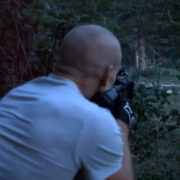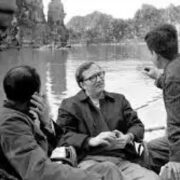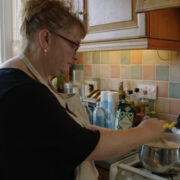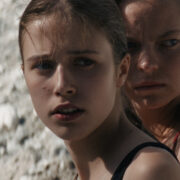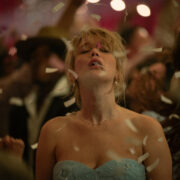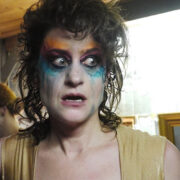Cannes 2025: Sound of Falling and A Pale View Of Hills
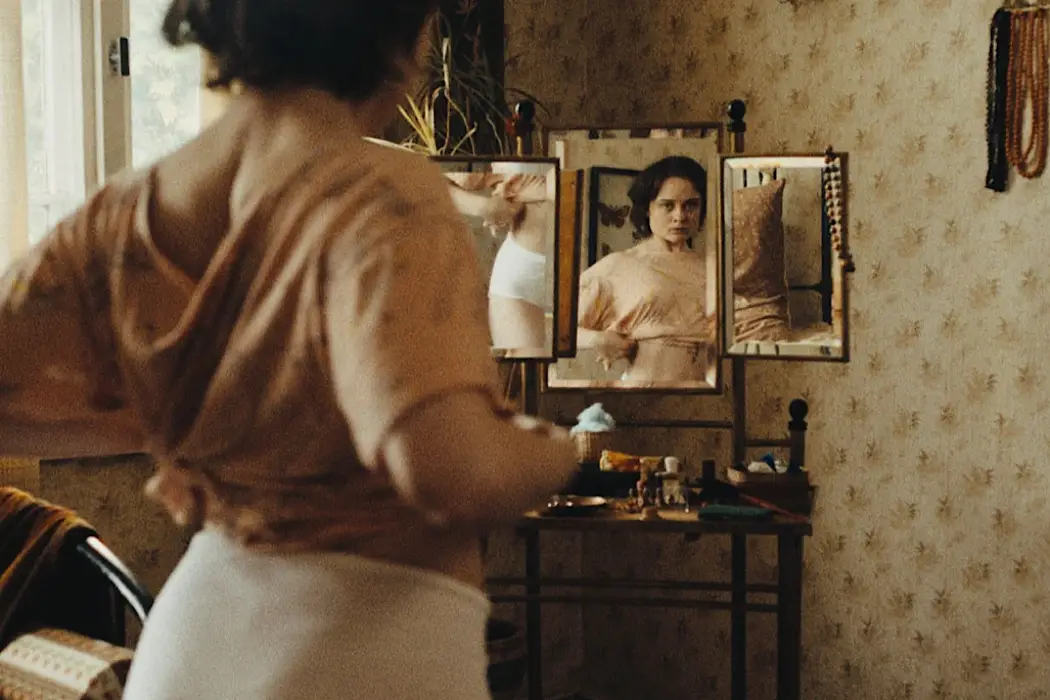
Wilson is a cinema enthusiast based out of Toronto, Canada.…
The following two films playing at Cannes both explore the collective, and often generation-spanning traumas experienced by women. With A Pale View of Hills, Kei Ishikawa adapts Kazuo Ishiguro’s award winning novel, which recounts the emotional and physical traumas following the Nagasaki nuclear bomb attack. Mascha Schilinski‘s Sound of Falling, on the other hand, is entirely fictional, but explores the lingering impact of death and abuse across a few generations of women.
A Pale View Of Hills (Kei Ishikawa)
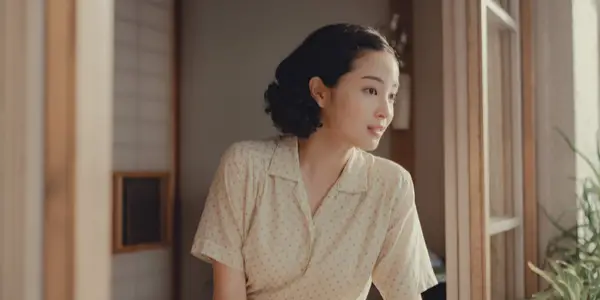
Tackling the aftermath of the Nagasaki nuclear bombing with gentle restraint, A Pale View of Hills is a remarkable film that defies convention as a narrative about shared traumas. Kei Ishikawa injects a quiet sense of reserved urgency to the film, creating a story that’s intentionally shielded by a mushroom cloud of mystique. The result is a cinematic experience that’s gracefully crafted, and full of creative ingenuity.
Jumping between past and present, the film – based on Kazuo Ishiguro’s novel of the same name – follows Etsuko (Suzu Hirose) during her earlier years in Nagasaki, Japan, and her life as a mother (Yoh Yoshida, later years) in suburban England. Like many others, Etsuko was close to the nuclear bombings during the end of the Second World War, and sought to start anew in another country. Years later, her daughter, Niki, hopes to learn more about her mother’s past as part of her next assignment as an aspiring journalist. Through a number of interview sessions, details about her older half-sister, Keiko, whom Etsuko rarely talks about, are also revealed.
Beyond the obvious narrative connections, the two timelines are also bridged together through this haunting element of shared memories between its characters. Even though Niki isn’t directly affected by the nuclear bombings from years past, the downstream effects of death seem to permeate her lived experience nonetheless. In many respects, the ghosts of the bombings linger across space and time, which is something Ishiguro illustrates through both subtle and overt stylistic choices. While never devolving into elements of horror, the story finds itself touching those surfaces, before reeling back into reality.
This is done all while maintaining a sentimental touch for its mother-daughter relationship that is central to the story. There are tender moments that are presented with grace, which are interjected by serious, and often dark, situatinos that are just as essential to the story. Ishikawa finds a perfect balance here, and seems to have a strong command of shifting the tone in a seamless fashion. Pawel Mykietyn‘s score also creates this feeling of fleeting calamity, which accentuates the narrative’s theme of everlasting trauma.
When the film finally reaches its climatic end, and fully reveals its cards, any sleight of hand feels like a very natural surprise that meshes within Ishikawa‘s very unique storytelling canvas. And while stories about trauma, particularly those in relation to wartimes, are vitally important, they’re also emotionally taxing and (appropriately) difficult to watch. But despite its subject matter, A Pale View of Hills is a relatively digestible film that doesn’t necessarily shy away from more serious undertones. It’s an emotionally resonant experience that unravels the usual expectations of stories like this.
Sound of Falling (Mascha Schilinski)
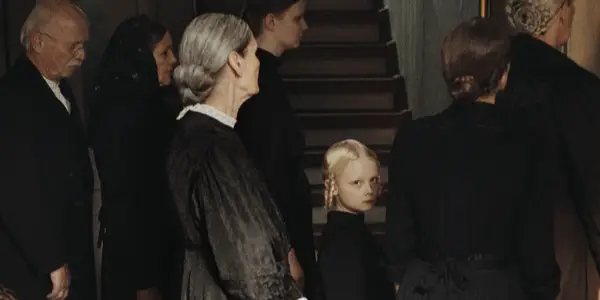
Every once in a while, you get introduced to a filmmaker who simply floors your expectations. With Sound of Falling, Mascha Schilinski has made a statement film that is bound to lift her career into new heights. The film is an atmospherically pristine and deeply meditative cinematic experience, that dismisses conventional storytelling mechanisms. One of the most impressive films screening In Competition at the festival this year.
Sound of Falling follows a group of woman who live in the same house across four different generations. As they navigate through life and death – and to be honest, mostly death – each experience seems to tread familiar ground, while also being seemingly different. The film features impressive turns from a large cast, including Hanna Heckt, Lena Urzendowsky, Lane Geiseler, Susanne Wuest, Luise Heyer and Lea Drinda.
Right from the outset, Schilinski frames each scene with an observational lens that drifts – often abruptly – from one timeline to the next. As the camera seems to take on the perspective of each women’s collective traumas, its identity is never made clear, but it drifts from scene to scene like an aimless ghost searching for something. As an audience, being taken on this journey feels rather disjointed at first, but eventually comes together as the narrative is steeped in Schilinski’s masterful direction.
Another guiding light in the film, as the title might suggest, is the use of sound as a storytelling tool. Schilinski inserts strings of chaotic rumbling at just the right moments, often creating a catharsis in how the film’s characters process death and trauma. Through sound alone, the film somehow creates calamity in what is ultimately a chaotic narrative with constant time shifts. Evelyn Rack’s editing is also integral here, piecing together a story that lacks any cohesion on paper, but speaks volume when spliced together in such a grand and meaningful way.
With its almost two and a half hour runtime, Sound of Falling is nothing short of a challenging watch. Yet, with a bit of patience, the film proves to be a fruitful investment that pays off plentifully. Schilinski deserves all the flowers she can possibly get, and the film has certainly cemented her as a filmmaker to watch for years to come.
Does content like this matter to you?
Become a Member and support film journalism. Unlock access to all of Film Inquiry`s great articles. Join a community of like-minded readers who are passionate about cinema - get access to our private members Network, give back to independent filmmakers, and more.
Wilson is a cinema enthusiast based out of Toronto, Canada. He escapes from his day job by writing random thoughts about cinema on the internet. Although he has a longstanding penchant for Hong Kong cinema, he considers himself to be an advocate for Asian cinema in general. He has been attending the Toronto International Film Festival every year since 2005, and more of his work can be found on his website: www.wilson-kwong.com.




